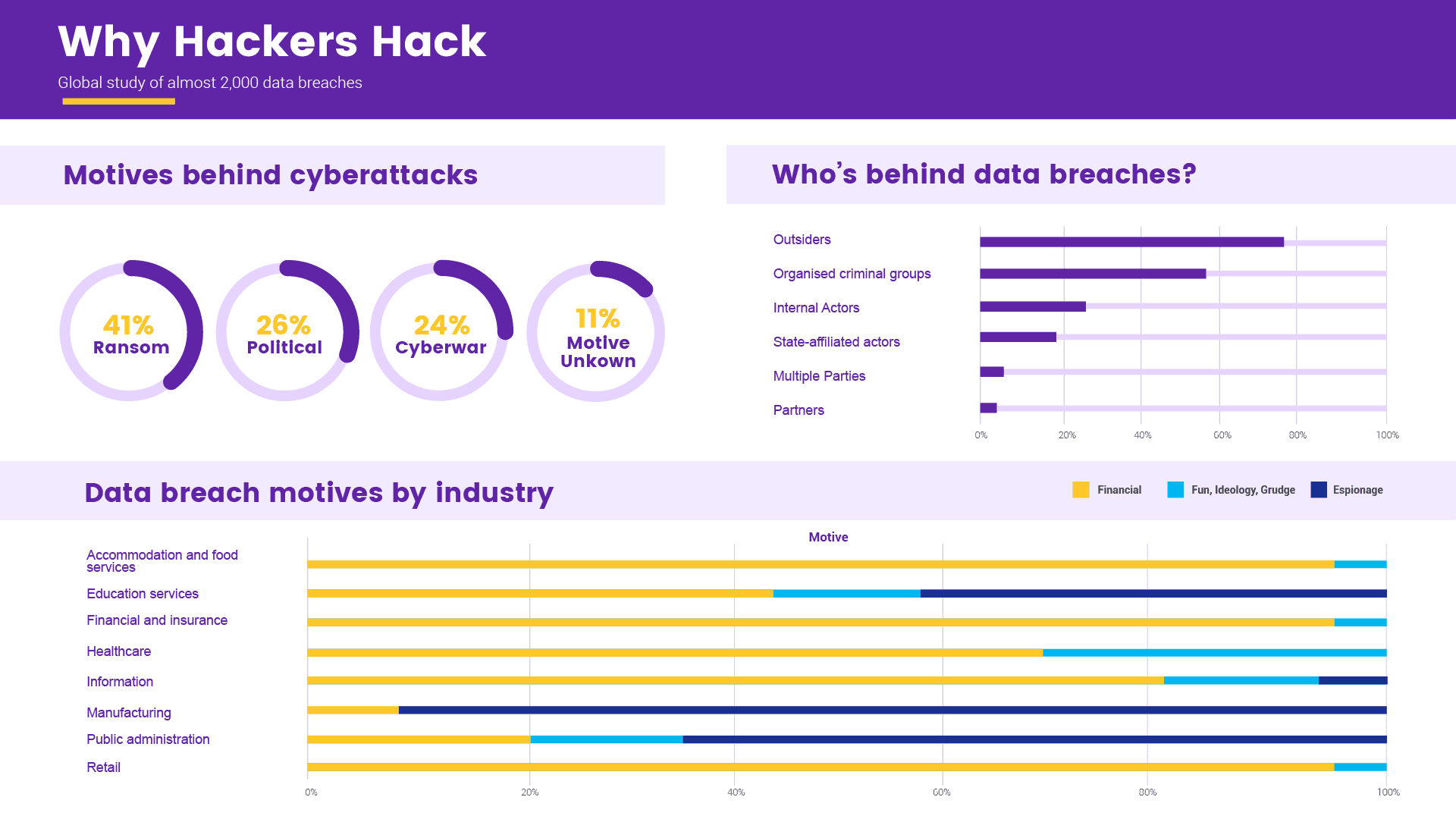Why Do Hackers Hack?
By the end of 2025, it is estimated that there will be more than 75 billion devices connected to the internet, and every single one of them will be vulnerable to hackers. According to Microsoft,there are 600 million cyber attacks every day and we can expect this number to continue to rise; but what motivates these hacks? Why are hackers doing this and what do they want?

1. Money
No surprises here, a lot of hackers are simply motivated by money.
Hackers don’t just hack businesses and ask for a ransom, they also try hacking into regular user accounts and try to take advantage of things like online banking, online retail or anywhere where financial transactions are involved.
In 2020 the biggest ransomware attack occurred called WannaCry where millions of computers around the world were hacked and users had to pay a ransom to get access back to their computers.
Hackers will infiltrate a company’s database of credit card information and use it to generate duplicate credit cards or steal the identities of victims. Once an identity is stolen, the thief can open up credit accounts in the victim’s name and ring up thousands of dollars in charges.
Larger organisations are obviously a more attractive target to a hacker, but ransomware against individuals via phishing schemes can also attract a sizable payout.
2. Steal/Leak Information
One of the most common reasons for hackers to hack is to steal or leak information.
This could be data and information about your customers, your employees or private business data.
One of the biggest and most public examples of this, is the Ashley Madison hack, where hackers were able to break into the customer database and get access to all of the site’s information. This incident was a big shakeup in the world of technology and hugely affected the lives of many people.
3. Disruption
These hackers don’t care about money or data; they seem to feel that they have a higher purpose in life.
Sometimes known as ‘Hacktivism’, some hackers are driven by a specific purpose. They take it upon themselves to expose injustice. Some have political, environmental, religious or moral motives, and they are hacking in an attempt to be heard, make a difference and to promote a particular agenda.
A major example is the hacktivist group ‘Anonymous’ who have been known worldwide for challenging and taking down many governments.
4. Espionage
Espionage is another type of theft except, instead of direct financial gain, the hackers are seeking protected information. Both governments and private organizations can be victims of information theft, and the information stolen can be either sold or used by adversaries to gain tactical advantages. Generally speaking, those who hack into governments are seeking state secrets while those who hack into private organizations are seeking trade secrets.
5. Spamming
Some malware can take over your web browser’s systems and overwhelm you with unwanted ads. It’s from this that spammers are able to steal passwords so they can use your e-mail or social media accounts to spam others in an attempt to sell products.
6. Vulnerability Testing
One of the best ways to test your systems and security measures is to have it hacked. Many Cyber security firms, government agencies, and a number of large businesses actively employ hackers to test their systems, locate vulnerabilities, and develop protections.
7. Fun
A lot of hackers will tell you that breaking into a secure system is an enjoyable hobby that tests their knowledge and skills. For these people, the only motivation is to gain some experience and have some fun. Yes crazy but true!
Contact Our Cyber Security Team Today!
For more information on all things cyber security, call us on 1300 350 292, or book an appointment here.

